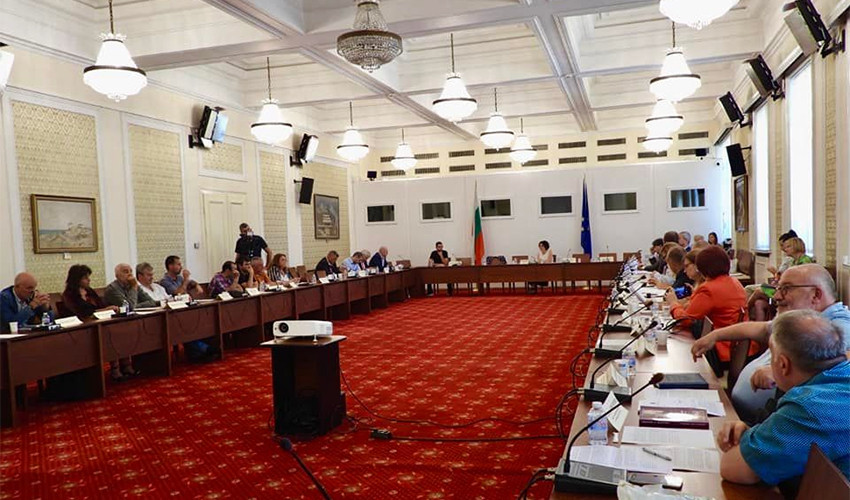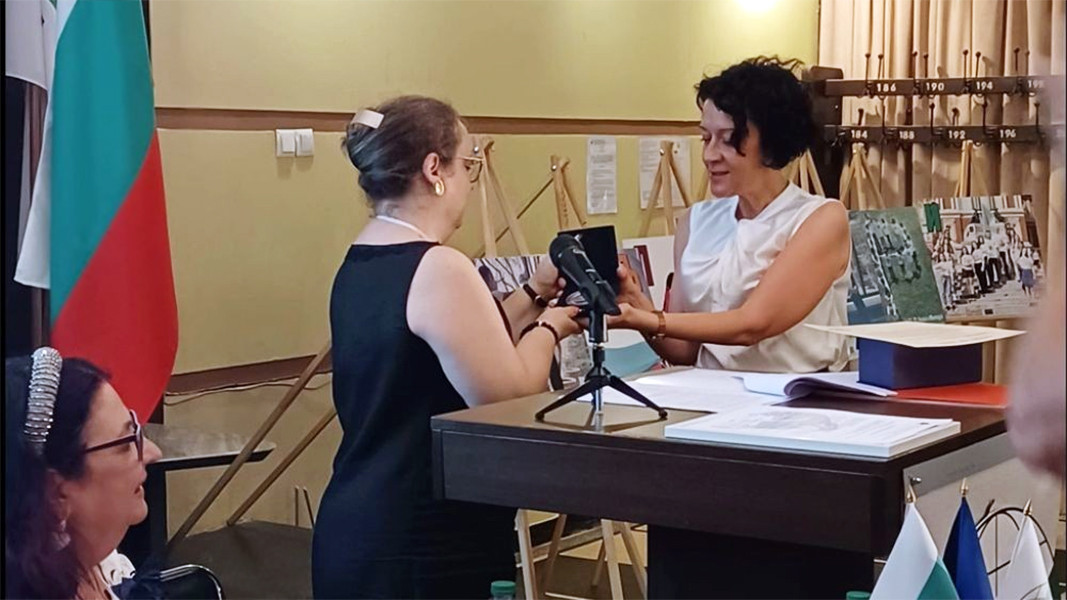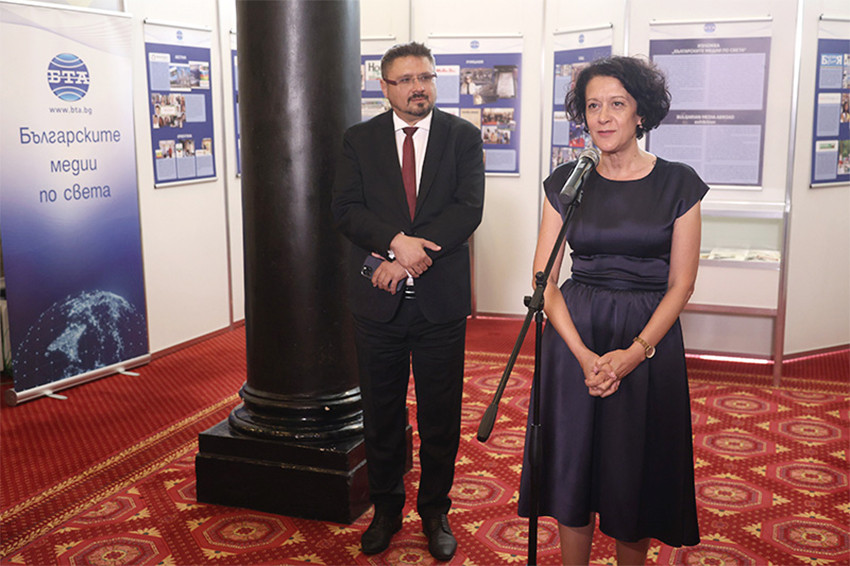The Commission for Bulgarians Abroad at the 47th National Assembly worked for just 6 months before parliament was dissolved. In addition to the priorities outlined by its chairwoman Antoaneta Tsoneva at the beginning of this year, the commission was able to resolve some issues raised at the hearings of the ministries, agencies and other services, directly or indirectly involved in the policies for Bulgarian communities abroad:

"We worked hard for solving the problem related to difficulties with the reception of young people of Bulgarian origin from the Western Balkans, Ukraine and Moldova, who have already acquired Bulgarian citizenship or have permanent residence, to Bulgarian universities. A change was made in the Higher Education Act and the existing obstacles have been removed," Antoaneta Tsoneva said in an interview with Radio Bulgaria. "Now those who have Bulgarian citizenship, not just a certificate of Bulgarian origin, can also benefit from admission under Resolution 103 of the Council of Ministers. This is important for thousands of young people who are permanently connected to Bulgaria. Therefore, this change in the law was adopted by a full majority."
Another success of the commission is related to the regulation on the long-term work of Bulgarian teachers abroad.
"It had not been amended for 10 years and according to the changes adopted at the penultimate meeting of the Council of Ministers, the teachers will receive 30% more money for daily expenses; the possibility of compensation for accommodation has also been introduced, as well as the payment of travel expenses for them and their families twice a year. Social, health and other benefits have also been greatly improved. In this way teaching of the Bulgarian language abroad will take place under much better working conditions."
Days before the end of her mandate as head of the commission, Antoaneta Tsoneva was among the guests at the conference of the Association of Bulgarian Schools Abroad. One of the topics discussed at the forum was related to the recognition of the Bulgarian language as having equal status to other European languages when matriculation exam results are concerned.

"This is a big battle that has been going on for a long time. The EP is also familiar with it and there is a resolution that the Bulgarian language should receive this status. However, this decision cannot be imposed simultaneously in all European countries. It should be done gradually with agreements between the Ministry of Education and Culture and each individual country, Tsoneva pointed out and added that it was important that children who attend Sunday schools from the age of 4 had an incentive not to give up learning the Bulgarian language when they grow up."
The commitment related to the provision of funds to support the Bulgarian media around the world is also at the final stage. 100,000 euros allocated for this purpose will be distributed as soon as the Council of Ministers adopts the relevant decree.
"I hope that the official cabinet will adopt this decree, because the funds provided for the assistance must be transferred to the budget of the Ministry of Foreign Affairs. The state should continue working despite upcoming elections."

The establishment of a Public Council with advisory functions to the Commission for Bulgarians Abroad with the participation of representatives of the BNR and BNT was also among the ideas discussed during the mandate, but the idea later changed:
"It turned out that the establishment of such a council only on the basis of organizations working abroad was not a sufficient criterion. It is much better when the interested parties work on issues together with the institutions,” Antoaneta Tsoneva says.
When it comes to the work of the Bulgarian cultural institutes around the world, Tsoneva says that their leaders should have much stronger commitment to relations with the Bulgarian communities.
"There is a regulation of the Ministry of Culture for the election of heads of Bulgarian Cultural Institutes. It reads that in addition to their priorities, the directors must present the way in which they will reach the Bulgarian communities. At the moment, this regulation is at the stage of public discussion and I hope that this requirement, as well as more transparent selection and higher accountability, will lead to turning these 11 institutes into real attractive centers for the Bulgarian communities abroad."
Photos: Facebook/Antoaneta Tsoneva, Diana Tsankova, parliament.bg
English: Alexander Markov
A major project to produce a feature film about the life and career of legendary Bulgarian footballer Hristo Stoichkov was presented on Wednesday, state news agency BTA reported. The premiere is scheduled for late 2027. The creators said they aim..
The dance group at the Bulgarian Sunday School "Dr. Petar Beron" in Sydney, Australia, took part in the twenty-seventh edition of the Children's Multicultural Festival, BTA reported. The young dancers presented a composition on stage..
All summer, and even now, Bulgaria has been fighting numerous fires – in the fields and in forests . At the same time, over half a million people in Bulgaria are without water supply or on a strict water regime. So, caught up in the current troubles,..
Since 1980, 27 September has been celebrated globally as World Tourism Day, marking the anniversary of the adoption of the UN World Tourism Organization’s..
In Argentine Patagonia, the city of Comodoro Rivadavia preserves the history of Bulgarian settlers, whose descendants still carry..
Before leaving this world, Pope Francis chose "Migrants, missionaries of hope" to be the theme of this year's World Day of Migrants and..

+359 2 9336 661
